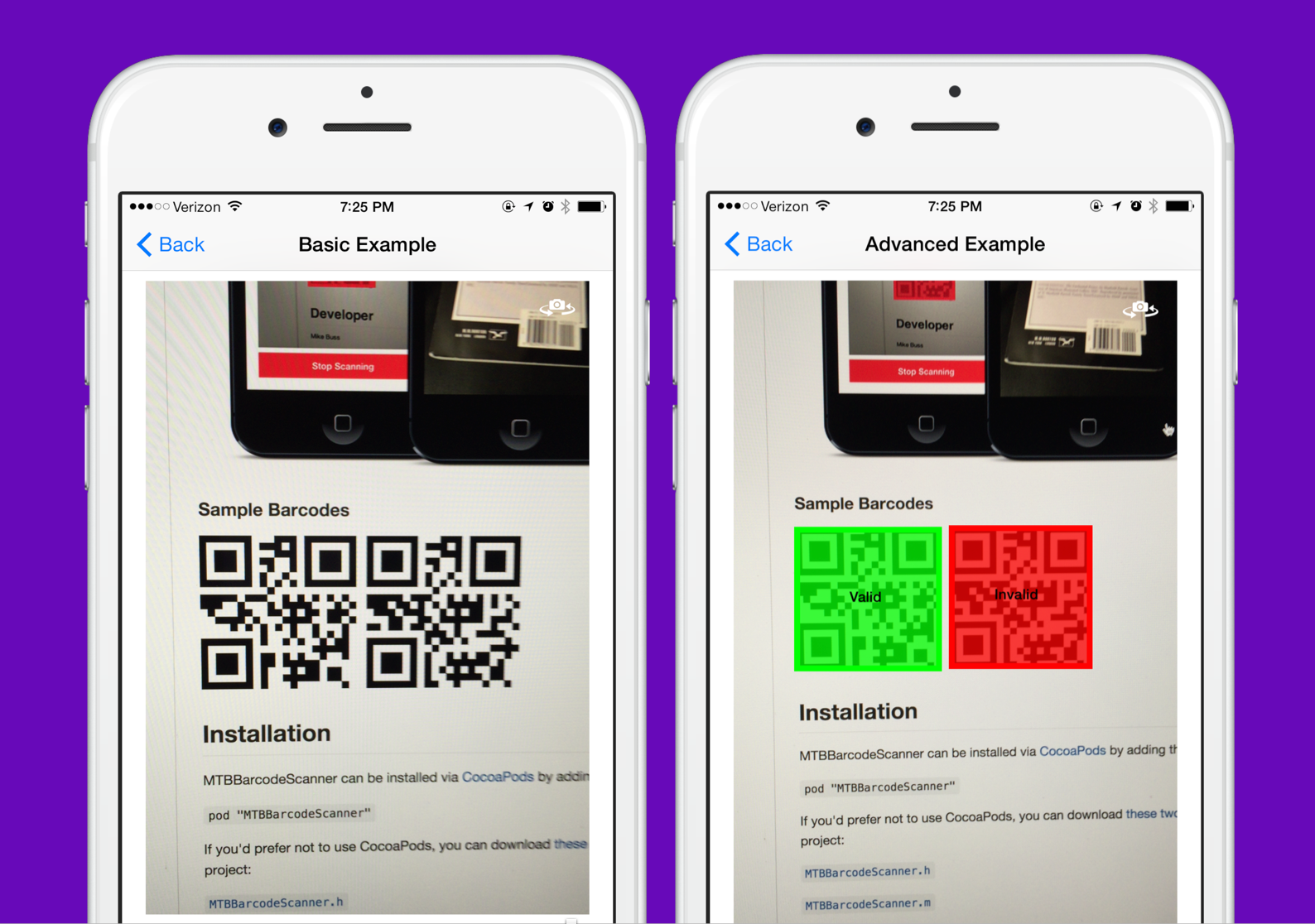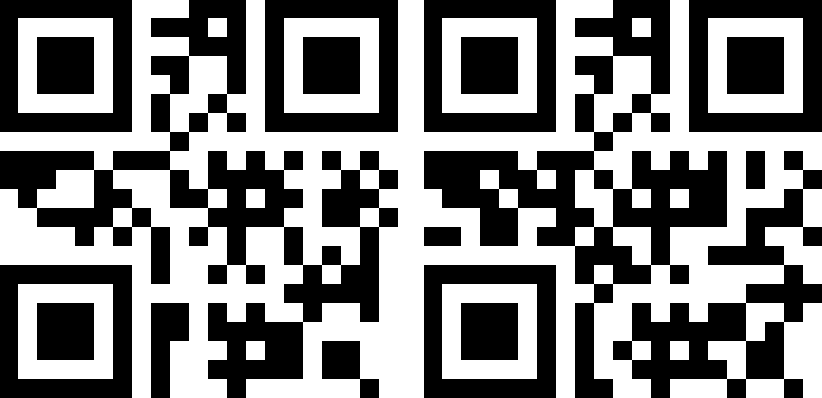A lightweight, easy-to-use barcode scanning library for iOS 7+.
With this library you can:
- Supply a custom UIView for displaying camera input
- Read any number of barcodes before stopping
- Read multiple codes on the screen at the same time (2D barcodes only)
- Easily receive codes with a block, including the string value and position in the preview
- Easily flip from the back to the front camera
See demo project for examples of capturing one code, multiple codes, or highlighting codes as valid or invalid in the live preview.
MTBBarcodeScanner can be installed via CocoaPods by adding the following line to your Podfile:
pod "MTBBarcodeScanner"
If you'd prefer not to use CocoaPods, you can download these two files and add them to your project:
To import the library: #import "MTBBarcodeScanner.h"
To initialize an instance of MTBBarcodeScanner:
scanner = [[MTBBarcodeScanner alloc] initWithPreviewView:self.previewView];Where previewView is the UIView in which the camera input will be displayed.
If you only want to scan for certain MetaObjectTypes, you can initialize with the initWithMetadataObjectTypes:previewView: method:
s = [[MTBBarcodeScanner alloc] initWithMetadataObjectTypes:@[AVMetadataObjectTypeQRCode]
previewView:self.previewView];To read the first code and stop scanning:
[MTBBarcodeScanner requestCameraPermissionWithSuccess:^(BOOL success) {
if (success) {
[self.scanner startScanningWithResultBlock:^(NSArray *codes) {
AVMetadataMachineReadableCodeObject *code = [codes firstObject];
NSLog(@"Found code: %@", code.stringValue);
[self.scanner stopScanning];
}];
} else {
// The user denied access to the camera
}
}];If the camera is pointed at more than one 2-dimensional code, you can read all of them:
[self.scanner startScanningWithResultBlock:^(NSArray *codes) {
for (AVMetadataMachineReadableCodeObject *code in codes) {
NSLog(@"Found code: %@", code.stringValue);
}
[self.scanner stopScanning];
}];Note: This only applies to 2-dimensional barcodes as 1-dimensional barcodes can only be read one at a time. See relevant Apple document.
To continuously read and only output unique codes:
[self.scanner startScanningWithResultBlock:^(NSArray *codes) {
for (AVMetadataMachineReadableCodeObject *code in codes) {
if ([self.uniqueCodes indexOfObject:code.stringValue] == NSNotFound) {
[self.uniqueCodes addObject:code.stringValue];
NSLog(@"Found unique code: %@", code.stringValue);
}
}
}];Switch to the opposite camera with the flipCamera method on the scanner:
- (IBAction)switchCameraTapped:(id)sender {
[self.scanner flipCamera];
}
Or specify the camera directly using the camera property, like so:
MTBBarcodeScanner *scanner = [[MTBBarcodeScanner alloc] initWithPreviewView:_previewView];
scanner.camera = MTBCameraFront;
Examples for these are in the demo project.
The primary goals of this library are to:
- Provide an easy-to-use interface for barcode scanning
- Make as few assumptions about the scanning process as possible
- Don't assume the user wants to scan one code at a time
- Don't assume the camera input view should be a particular size
- Don't assume the scanning process will have it's own view controller
Mike Buss
MTBBarcodeScanner is available under the MIT license. See the LICENSE file for more info.




